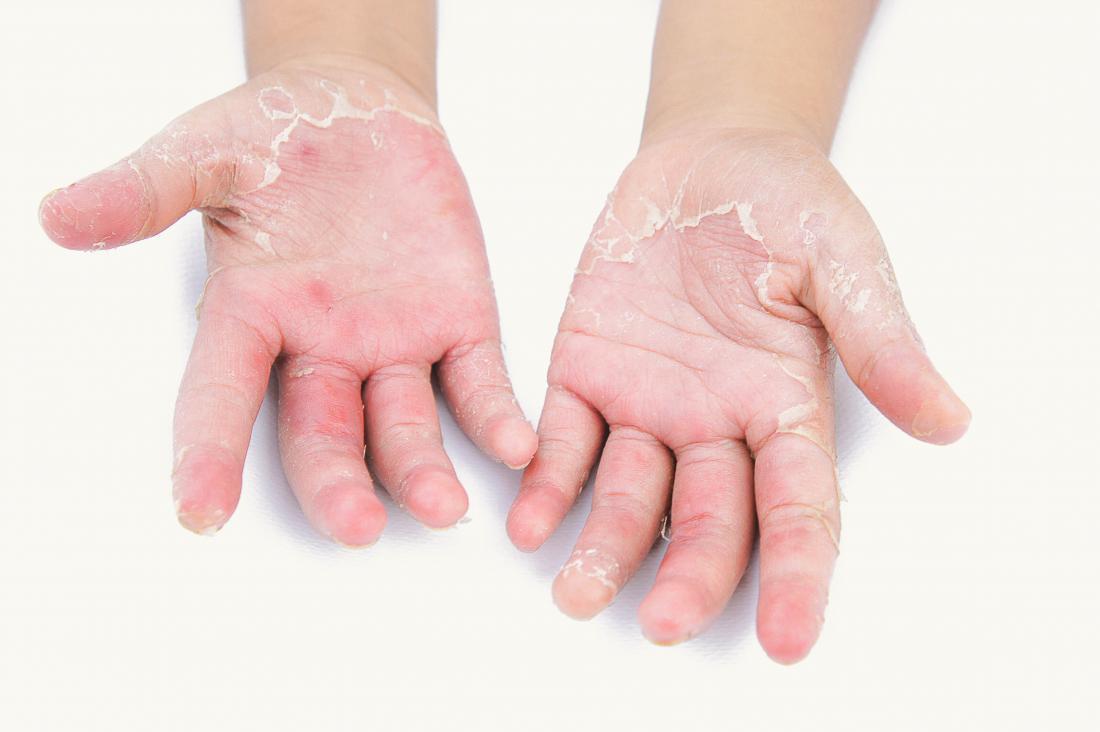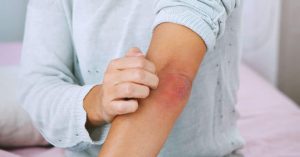by Tony Pearce RN.
Specialist Trichologist, National Trichology Services
Psoriasis is the most common scaling disorder seen by Health Practitioners, Trichologists or Hairdressers. It is also perhaps one of the most frustrating conditions to treat. Just as the appearance, symptoms and severity of psoriasis differ from individual to individual, so do responses to treatment. Here is one current dietary regime that is frequently beneficial for most sufferers. Consider this as a guide only…
Diet:
Eliminate all wheat products such as bread/pasta from the diet for a period of 4 weeks. Substitute with ‘Gluten-free’ breads & rice pasta. Use grains such as rice, corn, sago, oats or spelt. Gluten the main protein of wheat, is a common dietary allergen resulting in Coeliac Disease or Gluten Sensitivity. If Gluten is a factor, your psoriasis should begin to show improvement within 1–4 months.
Increase green leaf & cruciferous (eg: broccoli) vegetable intake to approximately 1/3 of total dietary consumption for at least 5 days per week.
Eliminate all red fruits & vegetables: tomatoes, berries, beetroot, and other acidic varieties.
Drink at least 6-8 glasses of filtered water per day
Eat at least 3-4 serves of fish per week (especially deep sea “oily” fish such as swordfish, salmon, tuna, sardines, herring etc.) Take 1000 mg of Omega 3 (fish oil) 2-3 times per day.
Eliminate or Reduce Dairy Produce: milk, cheese, yogurt. Try “challenging” dairy by eliminating from the diet for a period of 4 weeks. Substitute with soya: milk, miso soup, tofu etc. Note: Soy inhibits zinc absorption.
Don’t smoke, & moderate or eliminate alcohol intake
Decrease red meat intake (substitute with fish and/or organic chicken). Note: Women should pay particular attention to maintaining adequate iron intake, and have their iron storage (‘Ferritin’) levels assessed 2-3 times per annum. Research suggests a woman’s ferritin level should be 80-120ug/L for optimal hair growth & hormonal balance.
Decrease or “challenge” crustaceans (prawns, crab, crayfish etc.) if you consume these regularly.
Minimise ‘hot/spicy’ foods as well as spices themselves (ginger excepted)
Reduce soft drink (particularly artificially sweetened), confectionary & processed snack food intake
Suggested Nutritional Supplements:
L-tyrosine Amino Acid powder: particularly for systemic psoriasis, or a “flare-up” exhibiting ‘angry-looking’ red, moist skin.
TMG Powder – Trimethylglycine (commonly known as Betaine) + Quercetin a powerful antioxidant & immune system booster. Developed by Mr. Arthur Chan, a world authority in hair & skin research, this natural product is especially beneficial for people with chronic illness, compromised immune function, severe allergies, or chronic skin problems.
‘Slow release’ Vitamin B Complex 1-3 tablets daily
Zinc Complex 50mg daily with main meal (3-4 months only). Do not take with iron or copper supplements as they antagonise zinc absorption.
‘Fish Oil’ (Omega 3) 1000 mg 2-3 times daily.
Flaxseed or Evening Primrose Oil (Blackmores EFA Complex is an excellent combination of essential fatty acids).
Vitamin C: some dietary regimes suggest minimising its intake when treating psoriasis, whilst others advise 1000mg daily intake.
Some Points to Consider with Psoriasis:
Psoriasis is an inherited ‘autoimmune’ skin disorder and as such can be managed but not presently cured.
Managing Psoriasis requires a total lifestyle approach. People with psoriasis should care for themselves physically, emotionally, & spiritually. Schedule time for yourself to enjoy moderate exercise, read a book, listen to music, the company of friends. Your diet & lifestyle needs careful consideration; do these things and your skin will reap the benefits.
Successfully managing psoriasis is best approached with an ‘inside/outside’ therapy regime. Removing built-up scale to treat the underlying lesion/s is the essence to a positive improvement in the external appearance of the condition.
People experiencing psoriasis commonly report the condition appears in cycles; less problematic in the warmer months, & flaring as the cooler seasons approach. This is because psoriasis is generally improved by exposure to UV radiation from the sun’s rays. In the northern hemisphere psoriasis is referred to as the “Winter Itch”.
The severity of an individual’s psoriasis is often worsened by hormonal disturbance. Thyroid gland dysfunction, disordered cortisol levels, or other steroid hormone disturbance will be the frequent trigger for a psoriasis flare-up.
Topical Corticosteroid should only be used sparingly, & for very limited periods of time. Cortisone almost always causes a “rebound” or flare” in one’s psoriasis when it is withdrawn or used for too long.
A ‘Psoriasis Treatment Shampoo’ that works well for one person may aggravate the problem in another. ‘Trial & Error’ to find which shampoos your psoriasis best responds to is the only method. Generally speaking, ‘Tar’ shampoos or ‘Anti-Dandruff’ cleansers with zinc or selenium as their active ingredients tend to dry the scalp & hair with repeated use. A gentle, sodium-lauryl sulphate-free shampoo is ideal for shampooing the hair between ‘treatment’ cleanser application.
About the Author: Tony Pearce is a Specialist Trichologist & Registered Nurse. He is a founding member of the Society for Progressive Trichology & the official lecturer for Analytical Reference Laboratory (ARL) for hair loss & hormone imbalance. In Australia he can be contacted on +61 2 9542 2700, or through his website at www.hairlossclinic.com.au. Copyright Anthony Pearce
Copyright Anthony Pearce 2005. *References for this article available on request



